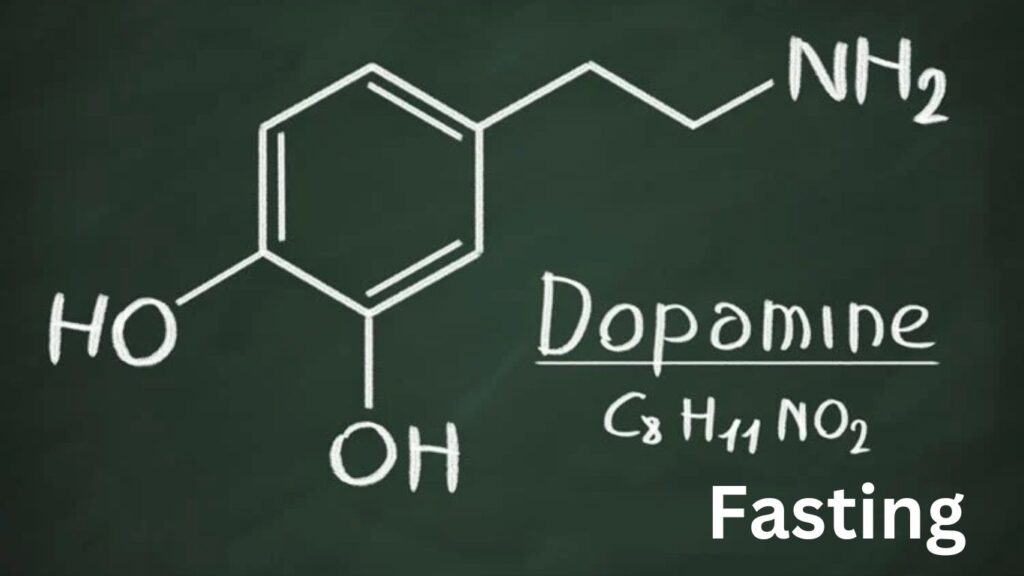Dopamine, a prominent neurotransmitter in the brain, plays a pivotal role in regulating our mood, motivation, and reward-driven behaviors. Often dubbed the ‘feel-good’ chemical, it’s released during pleasurable activities like eating, exercise, and social interactions, reinforcing behaviors essential for survival. However, its influence extends beyond mere pleasure; dopamine also contributes to learning, memory, and attention processes. This multifaceted neurotransmitter’s balance is crucial for both physical and mental well-being.
Recently, a new trend known as “dopamine fasting” has emerged, gaining traction in wellness and productivity communities. Proponents of this practice suggest temporarily abstaining from activities that stimulate dopamine release—like social media, enjoyable foods, or even engaging conversations—to ‘reset’ the brain’s reward system. This trend is based on the premise that excessive stimulation from modern life’s pleasures leads to an overreliance on dopamine-driven gratification, potentially dulling our sensitivity to everyday joys and rewards.
The key question that arises is: Is dopamine fasting grounded in scientific principles, or is it merely a contemporary wellness fad? This blog aims to unravel the science, or lack thereof, behind dopamine fasting, critically examining its theoretical basis and practical implications in the context of current neuroscientific understanding.
Dopamine Fasting: Myth or Science?
What is Dopamine?
Dopamine, a neurotransmitter in the brain, plays a multifaceted role in regulating reward, motivation, and pleasure. It’s often dubbed the ‘reward chemical’ because it’s released during pleasurable activities, reinforcing actions that are crucial for survival and well-being. This release of dopamine during enjoyable experiences helps form habits and preferences, essentially teaching the brain what to seek out and what to avoid. Dopamine’s role in motivation is particularly crucial; it’s not just the experience of pleasure, but the anticipation of it that drives us to act.
However, the common perception of dopamine as merely a pleasure-inducing chemical is a simplification. It’s also involved in a range of other functions like motor control, decision-making, and regulating mood. Dopamine imbalances are linked to various mental health conditions, illustrating its broader impact beyond just feeling good. Its complex role in the brain demonstrates how crucial it is for both physical and mental health, extending far beyond the simplistic view of it as just a ‘feel-good’ neurotransmitter.

The Emergence of Dopamine Fasting
Dopamine fasting, a concept that gained traction around 2019, was popularized primarily in Silicon Valley. It emerged as a response to the overstimulation of modern life, particularly from technology and social media. The idea was championed by Dr. Cameron Sepah, a clinical psychologist, who suggested that by temporarily abstaining from ‘dopaminergic’ activities — those that spike dopamine levels — individuals could reset their brain’s reward system.
Dopamine fasting typically involves restricting activities that are perceived to cause excessive dopamine release. These include limiting engagement with digital media, avoiding consumption of stimulant-rich foods and drinks, abstaining from social interactions, and sometimes even reducing pleasurable activities like exercise or sex. The fast can last for a few hours to a day, with the aim of reducing constant stimulation and creating a period of ‘boredom’ or neutrality.
Proponents of dopamine fasting claim that this practice can lead to increased focus, better emotional regulation, and an enhanced ability to find pleasure in simpler activities. They argue that it helps in breaking the cycle of compulsive behaviors driven by dopamine-seeking actions, such as compulsively checking social media or overindulging in foods. However, these claims have been met with skepticism from the scientific community, which questions the oversimplification of dopamine’s role and the effectiveness of such fasting practices.
The Emergence of Dopamine Fasting
Scientific studies on dopamine regulation reveal a complex picture that challenges the oversimplified view presented by dopamine fasting. Research indicates that dopamine levels are regulated by intricate neural networks and are not solely influenced by external stimuli like food or social media. Neuroscientists assert that dopamine’s role extends beyond just creating pleasure; it’s crucial in learning, memory, and decision-making processes.
Critically, the concept of reducing dopamine levels through fasting lacks robust scientific backing. Experts in neuroscience and psychology highlight that the brain’s dopamine system is not something that can be ‘reset’ in the way dopamine fasting advocates suggest.
The brain maintains neurotransmitter levels through homeostasis, a self-regulating process that balances chemical messengers. Any temporary decrease in dopamine activity due to fasting would likely be counteracted by the brain’s natural regulatory mechanisms. Therefore, while lifestyle changes can impact dopamine-related pathways, the idea of ‘fasting’ to reset dopamine levels oversimplifies a complex neurochemical system.

Criticisms and Misconceptions
The scientific community has raised significant critiques about the oversimplification of dopamine’s role in the concept of dopamine fasting. Dopamine is a multifaceted neurotransmitter involved in various brain functions, including mood regulation, attention, and learning, not just pleasure and addiction. By portraying it merely as a pleasure chemical, dopamine fasting oversimplifies the sophisticated neurochemistry of the brain. Neuroscientists emphasize that dopamine levels are not directly proportional to the number of pleasurable activities one engages in, and its regulation is far more complex than what dopamine fasting suggests.
Furthermore, there’s concern about the potential misapplication of dopamine fasting. It’s often mistaken as a catch-all solution for issues ranging from tech addiction to improving focus, without scientific evidence supporting these claims. This misunderstanding can lead individuals to overlook the need for holistic approaches to mental health and well-being.
It’s also crucial to differentiate dopamine fasting from addiction treatment. While both involve dopamine regulation, addiction treatment is a comprehensive process often requiring medical intervention, therapy, and long-term behavioral changes. It addresses the root causes of addiction, which are typically deeper and more complex than can be managed by simple abstinence from stimulating activities, as suggested by dopamine fasting. This distinction highlights the need for caution in adopting trendy wellness practices without sufficient scientific support.
Practical Implications and Alternatives
Individuals experimenting with dopamine fasting may encounter varied real-world implications. While some report temporary improvements in focus and reduction in compulsive behaviors, these benefits are often short-lived, given the lack of scientific grounding for the practice. The psychological effects can be mixed; while some find a sense of control in their digital consumption, others might experience increased stress or anxiety due to the rigid abstention from enjoyable activities.
Physiologically, the impact of dopamine fasting is questionable, as the body’s neurochemical balance is complex and self-regulated. Instead of temporary dopamine abstinence, experts suggest more sustainable and scientifically supported approaches. Mindful technology use, involving conscious and purposeful engagement with digital devices, can help mitigate tech addiction without complete abstinence.
A balanced diet, regular exercise, and adequate sleep positively influence dopamine levels and overall mental health. Therapy, particularly Cognitive Behavioral Therapy (CBT), offers structured ways to manage compulsive behaviors and improve mental well-being, addressing underlying issues rather than just symptoms. These approaches provide a more holistic and effective path towards mental health and well-being.

Conclusion
In conclusion, dopamine fasting, while a popular trend in wellness circles, lacks substantial scientific support. The notion of ‘resetting’ the brain’s dopamine system through abstention from stimulating activities oversimplifies the complex role of dopamine in human behavior and neurochemistry. While the practice may offer temporary changes in behavior, it does not align with the nuanced understanding of dopamine regulation provided by neuroscience. Instead, sustainable and scientifically-backed methods like mindful technology use, balanced diet, regular exercise, and therapy should be pursued for long-term mental health and well-being. Ultimately, fostering a balanced lifestyle is key to managing our brain’s intricate reward system.
Also read: Mental Health and Physical Exercise: A Two-Way Street
